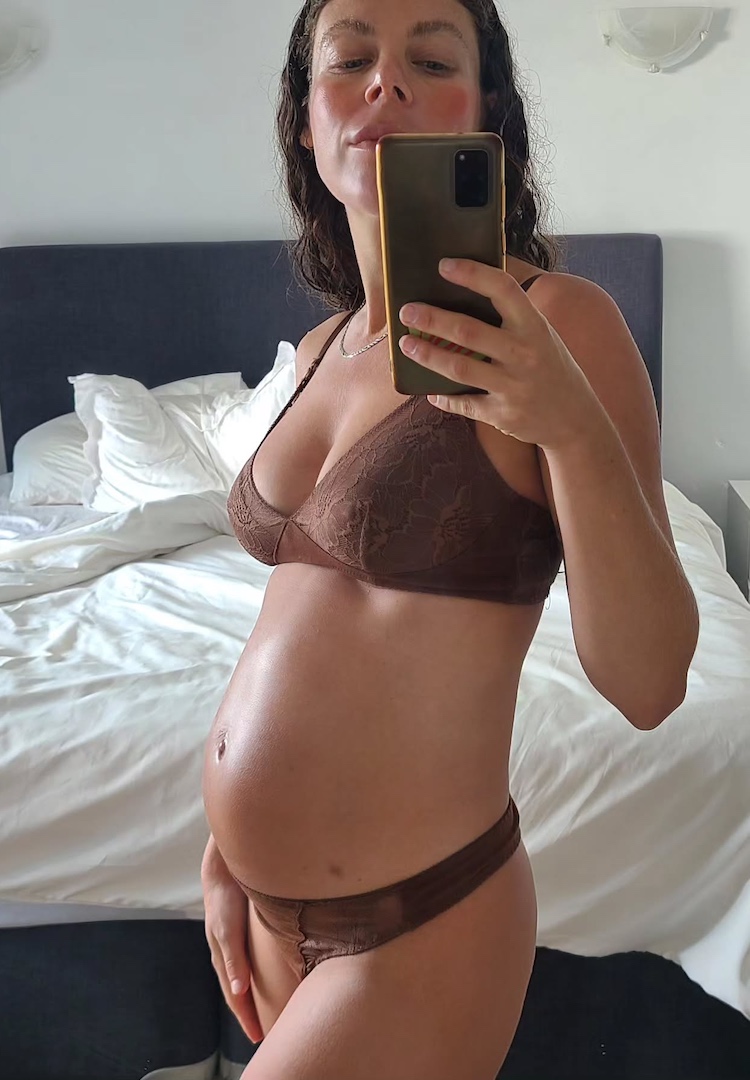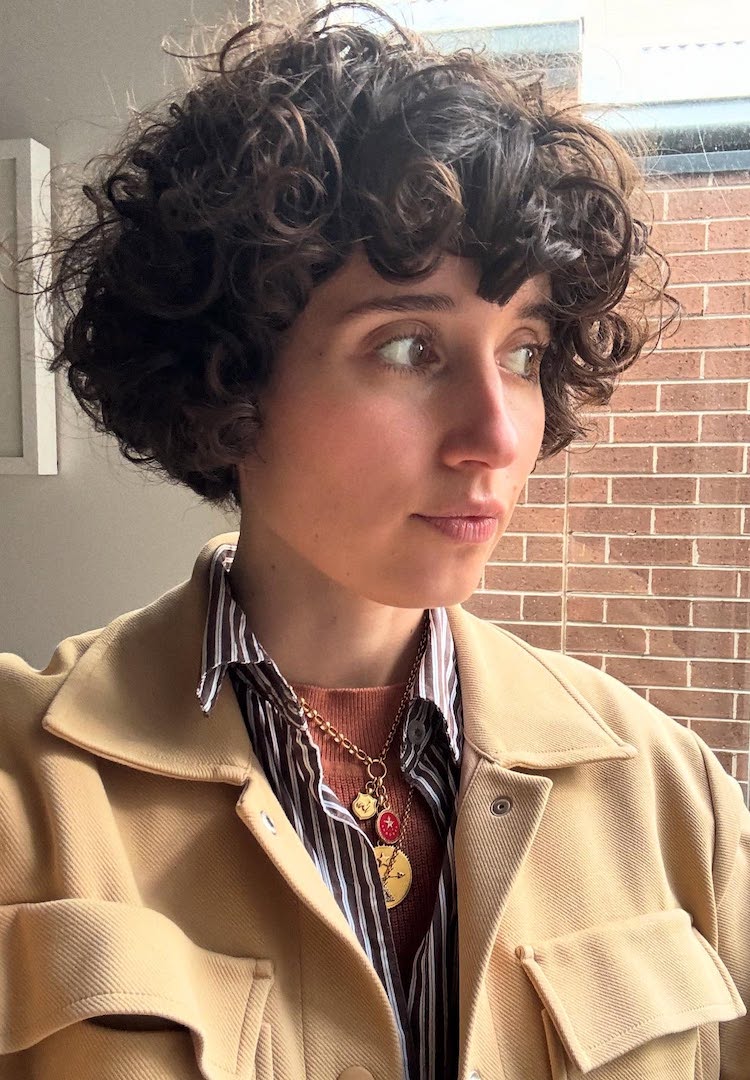Early menopause is real, here’s how to spot it
WORDS BY RUBY STALEY
What you need to know.
It’s not always greying grandmas that lose their periods and experience hot flushes – the reality of menopause is actually far more diverse. Unfortunately, there’s a general lack of understanding about women’s health, especially reproductive health, so are we really surprised that our understanding of menopause is based on myths and stereotypes?
Probably not, but it’s never too late to know more. According to naturopath, Tom Organic’s Tom Talks panellist and founder of Hormone Health Studio, Georgia Hartmann, menopause is a reality for some younger women too. And it’s far more common than many of us would think.
Interested to hear how others navigate the world? Head to our Life section.
Although there’s a wide variety of women’s health issues that are still misunderstood by both the general public and medical professionals, early menopause – or premature ovarian failure – is something I hadn’t even heard about before.
As Georgia explains, she didn’t know much about it either until her official diagnosis. “I was sitting across from my fertility specialist who looked me in the eyes and said, ‘I know you’re only in your 20s, but it seems you have early menopause’.”
What is premature ovarian failure?
Essentially early menopause, premature ovarian failure occurs when a woman or assigned female at birth person’s ovaries stop working before the age of 40. As her initial diagnosis set in, Georgia knew she still wanted to still have children eventually. Walking out of her fertility specialist’s office that day, Georgia recalls thinking ‘This cannot be the end’.
Holding onto hope, she investigated possible changes she could make to benefit her health and maybe even improve her condition. “I went on this huge journey to learn all about hormones: what they are, how they work, and how we can get them back in balance.”
What are the symptoms to look out for?
Although ovary-having people can experience early menopause in a myriad of ways, there are some key ways to spot it. You may be “experiencing irregular menstrual cycles and symptoms of menopause such as hot flushes,” as early identifiers of the condition, Georgia tells me.
From there, an official diagnosis of premature ovarian failure will require blood test results to see levels of the fertility hormones oestradiol, FSH, LH, and AMH, in combination with an irregular menstrual cycle. Georgia explains this could be anything “shorter than 21 days or longer than 35 days from day one of the menstrual bleed to day one of the following bleed”.
Additionally, a pelvic ultrasound may be completed to determine how many follicles can be seen on each ovary. According to Georgia, doing so “will be beneficial in determining how well the brain is communicating to the ovaries, and therefore how well the ovaries are functioning”.
How does early menopause impact your ability to have children?
When your body goes through premature ovarian failure, due to a fault in communication between the brain and the ovaries, the ovaries struggle to produce normal amounts of oestrogen, meaning there’s a difficulty releasing good quality eggs.
Because of this, Georgia says early menopause “absolutely can” impact your ability to become and stay pregnant, but it’s not an impossibility. “While many women can struggle to conceive naturally using their own eggs, there are options now such as [using] donor eggs that allow for healthy pregnancies.”
Although this pathway is a legitimate solution for many with premature ovarian failure who want to have kids, Georgia’s journey was a little different. Georgia sat down with her partner, who’s now the father of her two children, to figure out how to optimise every aspect of their health.
“We did in-depth testing to determine nutritional status, metabolic function, endocrine function and genetic predispositions and supplemented [that] with nutritional and herbal medicine,” she explains. Overhauling their entire diet and lifestyle, Georgia stopped eating inflammatory foods, ate plenty of antioxidants to support egg and sperm quality, and started tracking her irregular cycle to pinpoint ovulation.
“I got on top of stress by quitting my job, I changed my exercise routine, I prioritised eight hours of sleep each night. The result? I conceived my first son, Otto, naturally and had a healthy, uncomplicated pregnancy,” she tells me. And after successfully breastfeeding for 17 months, the pair decided to try again. Georgia is currently 37 weeks pregnant and preparing for her second homebirth.
What are the common misunderstandings around early menopause?
When it comes to early menopause, infertility is the biggest misconception that exists around the condition – and Georgia is living proof that it can be unfounded.
“While I’m very aware that not all women and couples will experience a fertility journey similar to my own, what I do know from the hundreds of women we see at Hormone Health Studio is that there are so many options nowadays. Something like a donor egg can be game-changing for women and couples trying to start a family,” Georgia says.
Another misconception that Georgia filled me in on is that many people believe you will develop osteoporosis. “We know that as women age and as oestrogen starts to drop that our bones may be compromised, but we must remember that bone health is a reflection of overall health and there is a lot we can do to support a healthy transition into menopause,” she explains.
Because of these misconceptions and many others surrounding early menopause and much of women’s health, Georgia tells me that the majority of people don’t understand “the health of the ovary starts before that woman is even conceived”.
“This is why it is so important for women and couples to undergo preconception care well before they want to start trying to conceive because getting pregnant is one thing but maintaining a healthy pregnancy and optimising the health and fertility of our future generations is a whole other consideration.”
How can you effectively manage the condition if diagnosed?
Although a diagnosis of early menopause – especially in your 20s – can be “gut-wrenching”, according to Georgia it’s important to know you’re not alone and that there is so much still within our control.
“We can control the food we eat, the movement we do, the sleep we get, the stress we put up with, the supplements we take, the tests we undergo, the relationships we have, the time we spend on social media, the toxins we are exposed to, how much alcohol we drink. So, focus on these factors and watch your health and hormones transform.”
Although there’s no cure per se for the condition, Georgia says that there are many ways the condition can be managed. “We are fluid beings. Our hormones change every hour of every day so we must remember that everything we do in our day-to-day lives will directly impact our hormonal balance and therefore how a diagnosis will play out.”
For more on premature ovarian failure, head here. If you have any concerns, consult your doctor.













